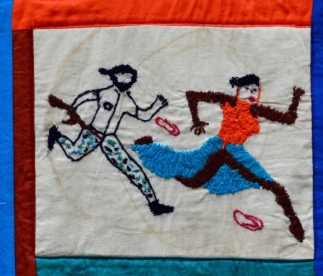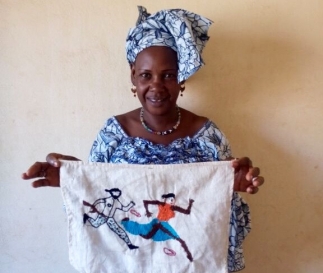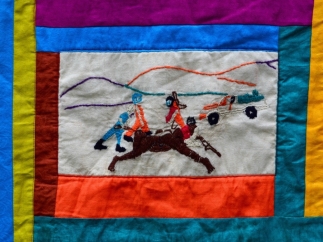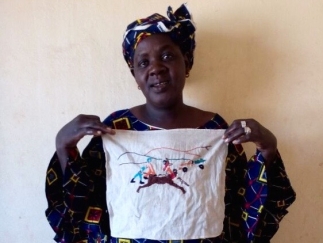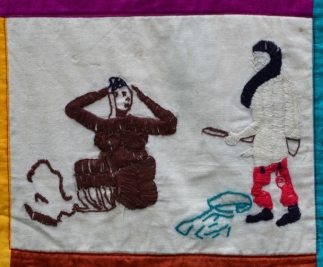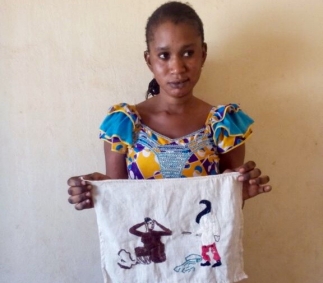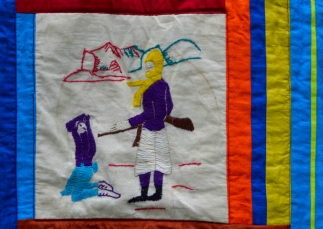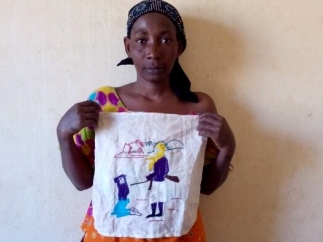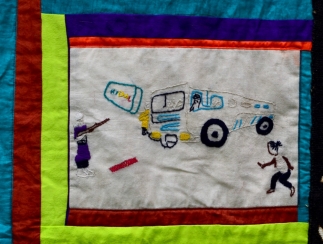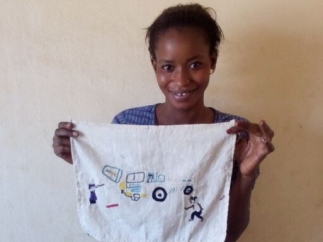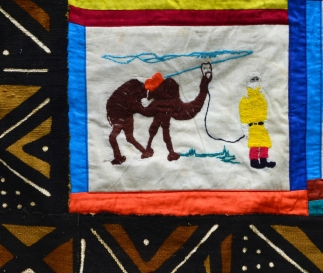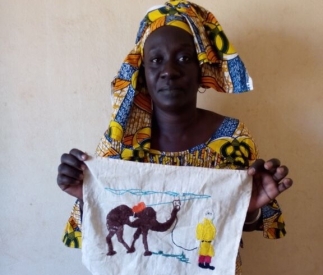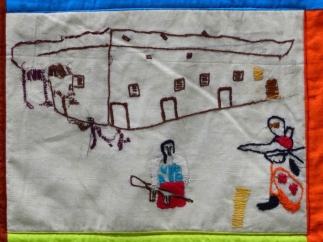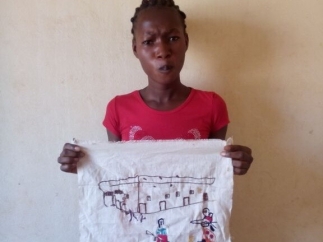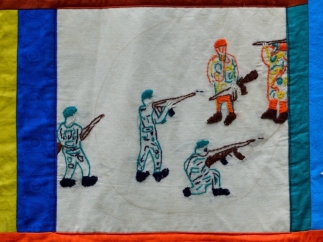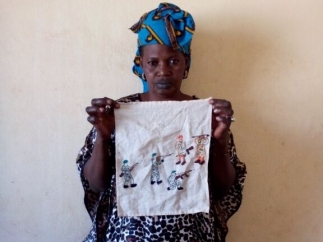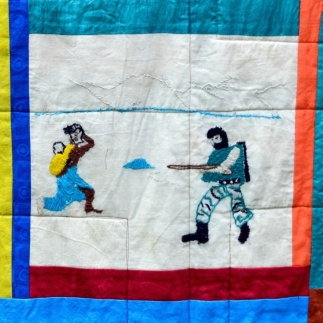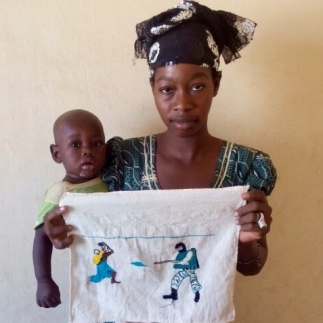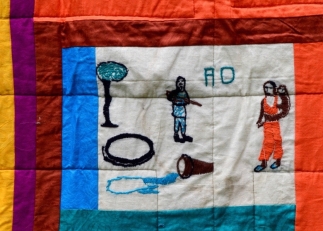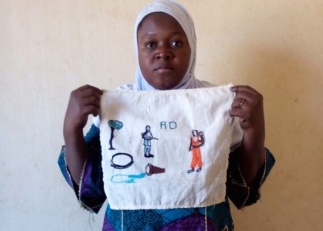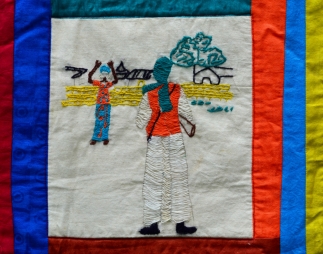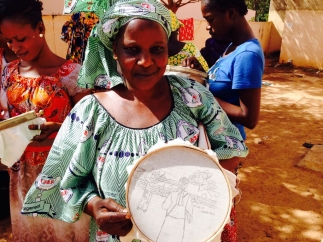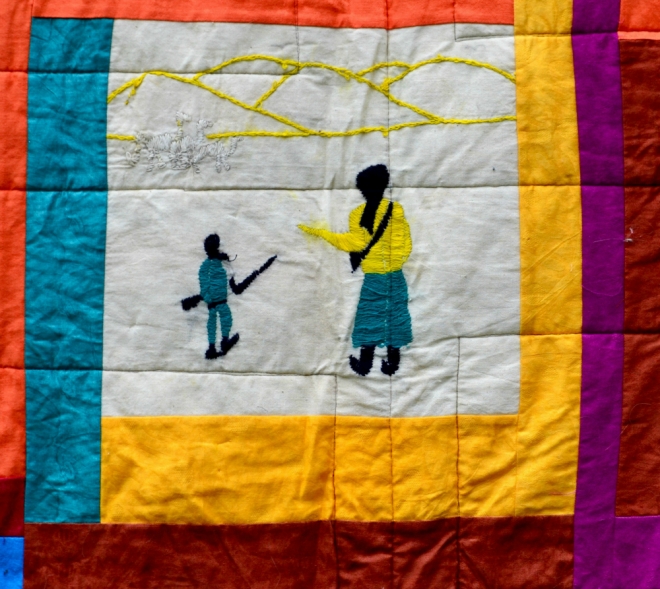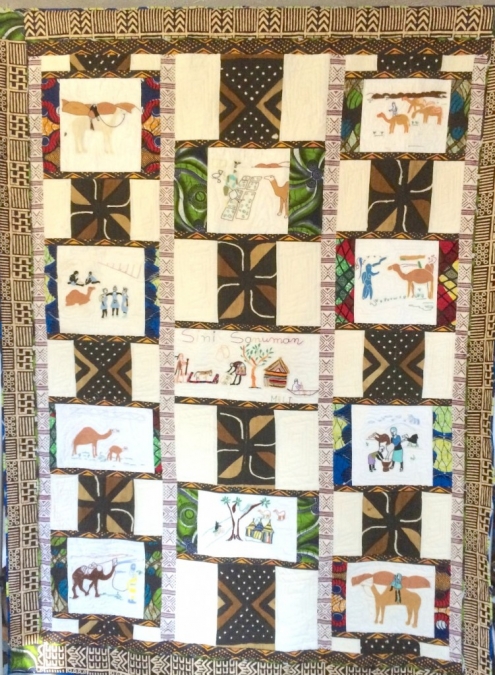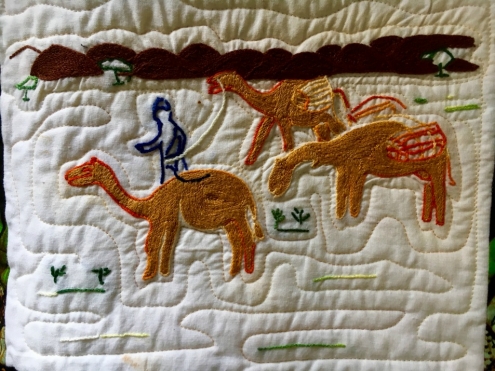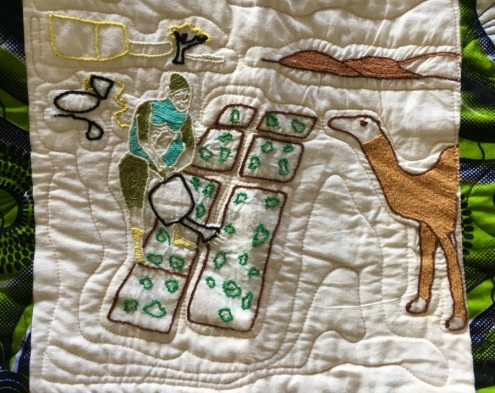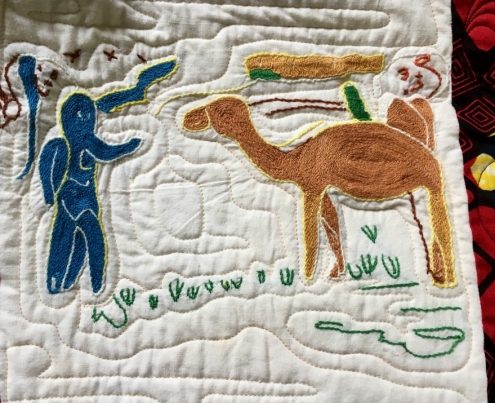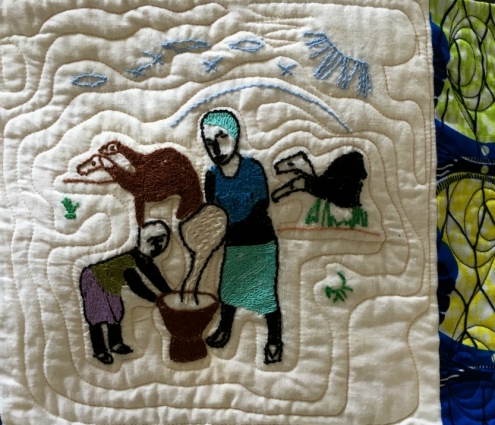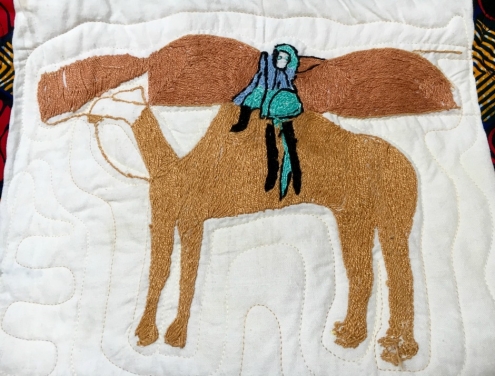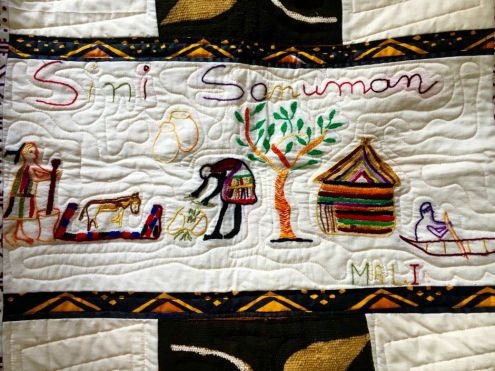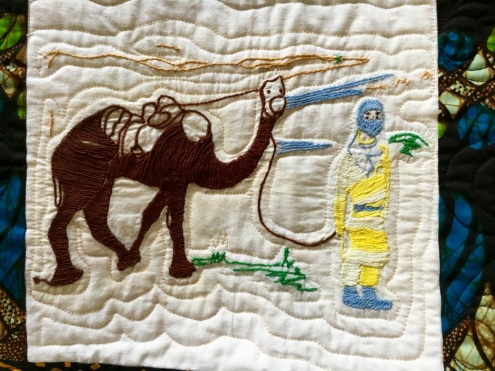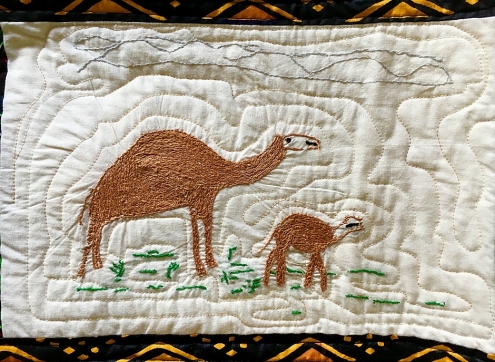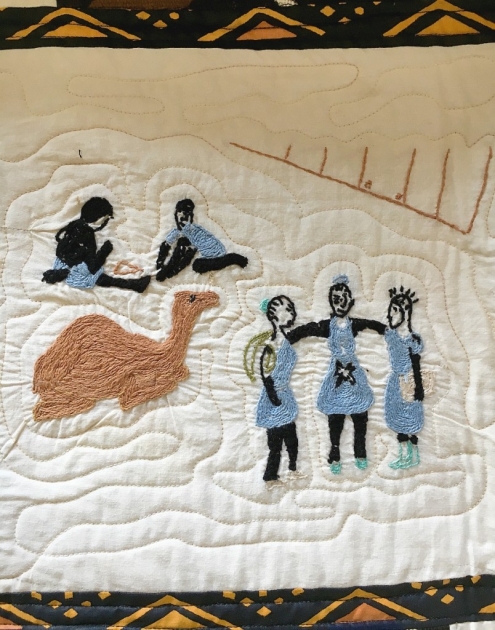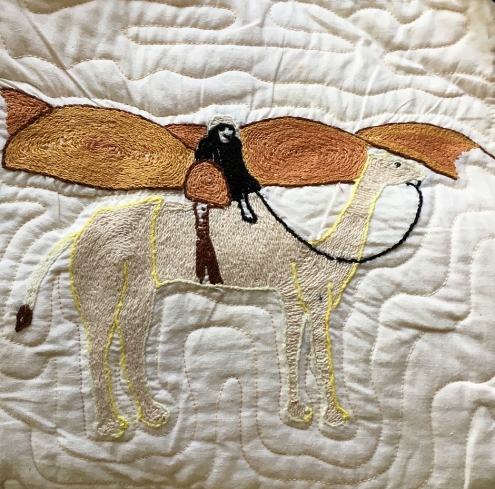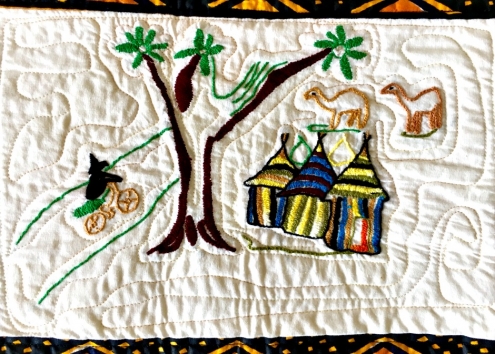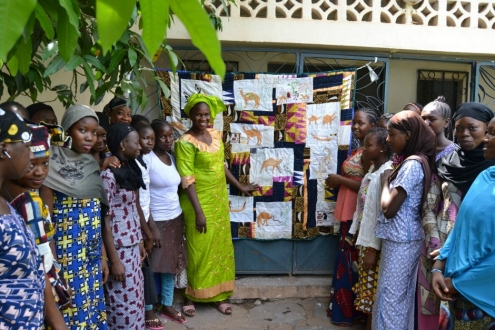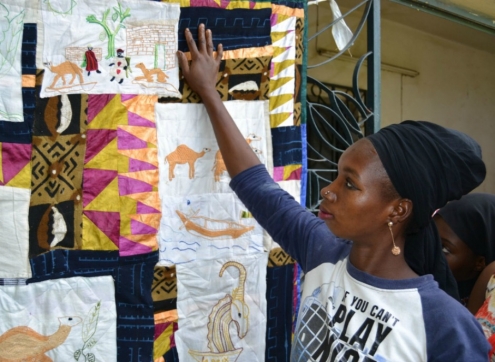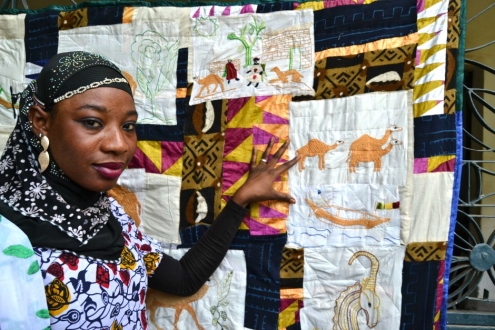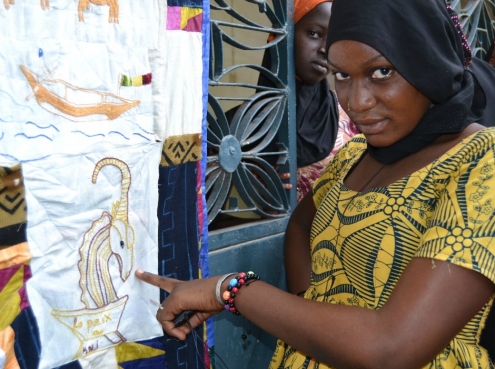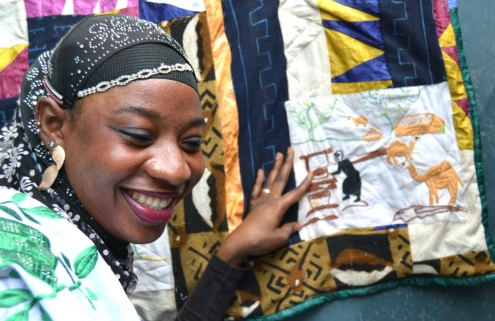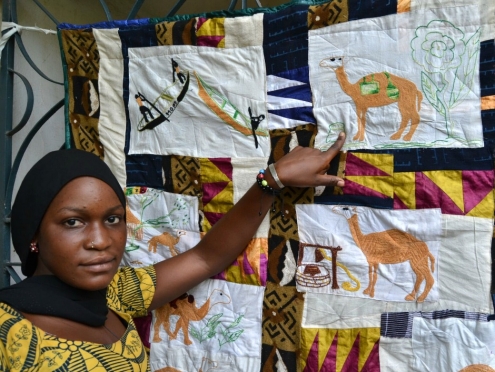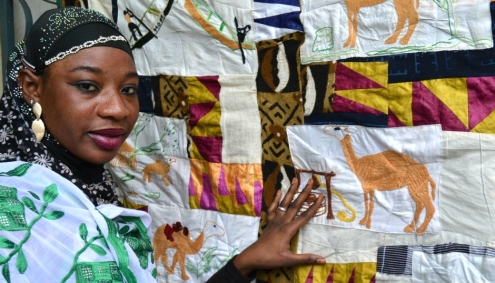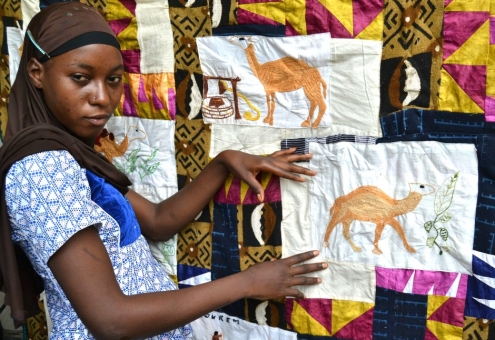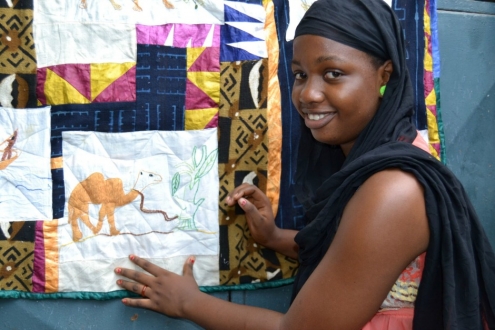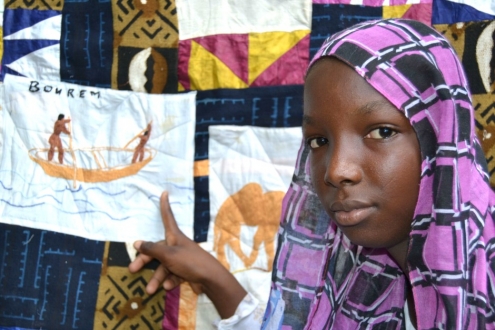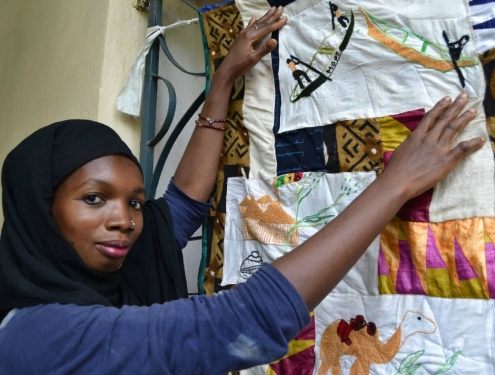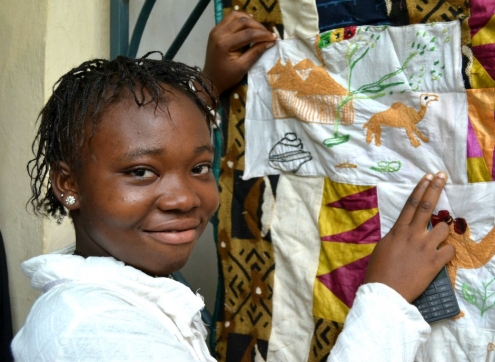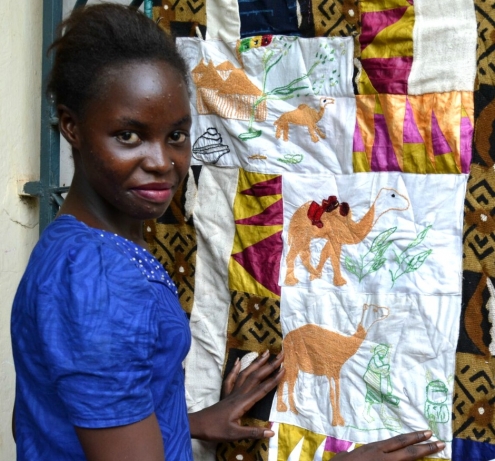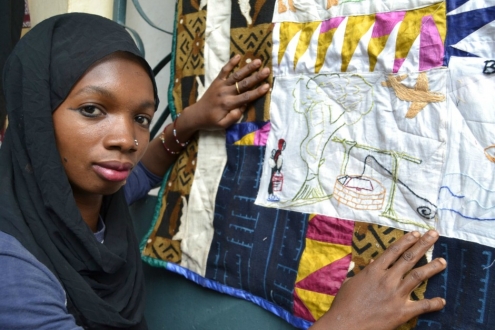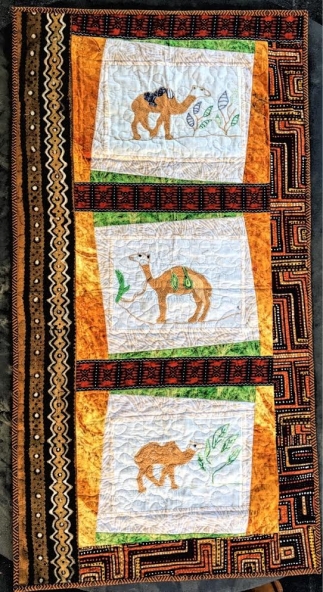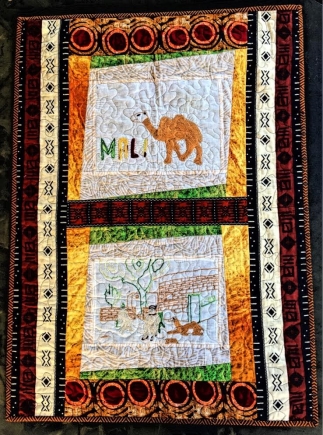The Alafia Mali (Peace in Mali) Quilts
Background
Background
In 2013, AP developed a program with our Malian partner, Sini Sanuman, to support survivors of sexual violence from the war. The program was modeled on the work of SOS Femmes en Danger in the Democratic Republic of the Congo. Sini Sanuman proposed to open two centers, in Bamako and Bourem, where survivors could spend up to three months relaxing in the company of other women and learning new skills. The proposal was submitted to Zivik, in Berlin, which funded our work with SOSFED in the DRC, and the two centers opened in June 2014. Our thanks to the Zivik team, which has helped to jump-start advocacy quilting by funding the Congo and Mali quilting projects.
|
|
In both centers, embroidery classes had a calming, therapeutic influence. This was well described by Peace Fellow Giorgia Nicatore in her blogs: “Embroidery is almost a magic tool that is able to, at once, create a sense of community (women sit and do the embroidery together, as pictured below) and also create a space in which to express themselves.”
By the end of 2014, the 60 survivors had produced about 70 squares of widely differing quality. Giorgia – whose dedication and good humor did much to sustain the project in Bamako – purchased Malian mud cloth to serve as quilt backing, and returned to the US with the squares and cloth. Together, Iain and Giorgia then handed the package over to the PM Fiber Arts Guild, to be assembled into quilts.
The two quilts were delivered to AP in April and exhibited for the first time at the Long Beach Island Foundation in New Jersey (July). The following month, the two Mali quilts again featured in an exhibition at the Artists and Makers studio, in Rockville Maryland. At the end of 2015, AP and Sini Sanuman began exploring ways to generate an income for the quilters. The final group of beneficiaries produced squares about camels that were brought back to the US and given to an experienced quilter, Merry May in New Jersey. We hope to sell Merry’s quilt, expected in the spring of 2016, and develop a market. In addition, the Bamako center has started to make shea butter soap for sale. This is described more on the Sini Sanuman partner page. To watch shea oil being produced in the villages, click here. To see soap being made in the Bamako center, click here. |
The First Alafia Mali Quilt
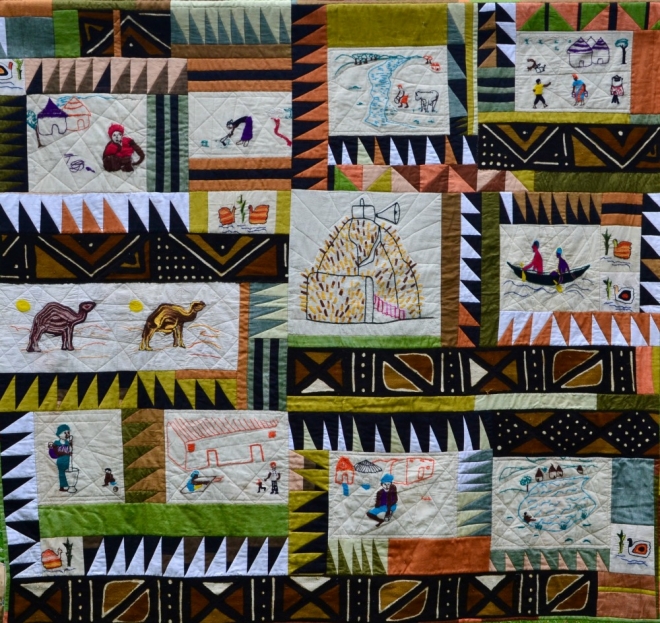 Front Side 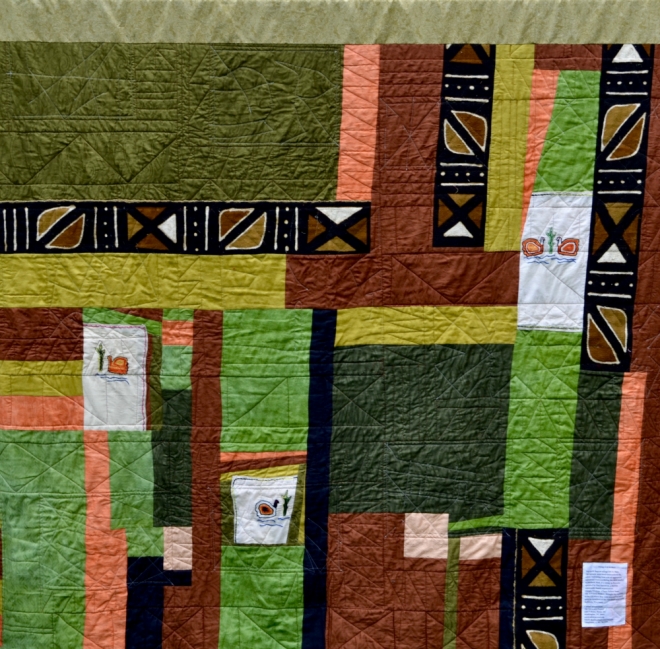 Back Side
This panel depicts a woman fetching water and her village in the distance. In Mali, collecting water is considered a woman’s duty. Since sources of water are often far from villages, some women must walk several miles a day just to get water.
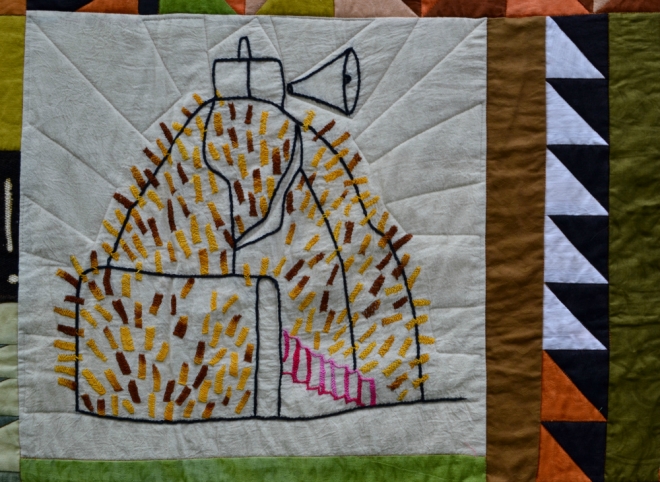 A typical Malian home, made of mud and straw. 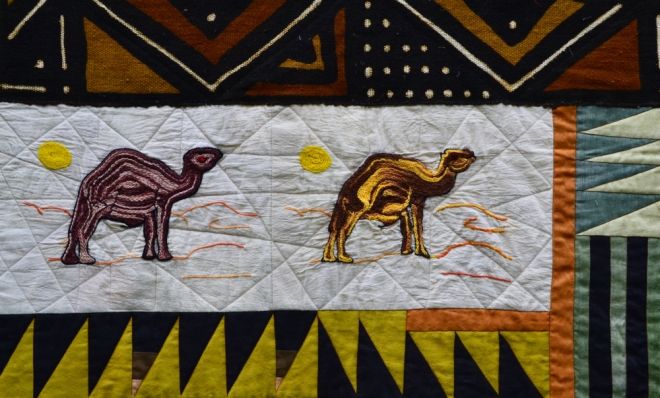 Dromedary camels walking through the desert. 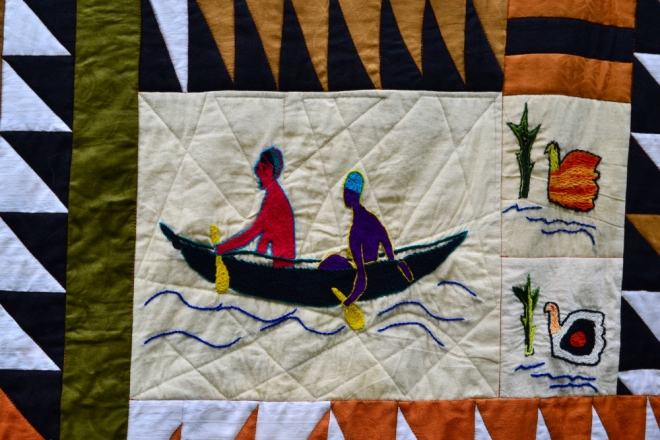 Two women on a pirogue, a traditional West African fishing boat. 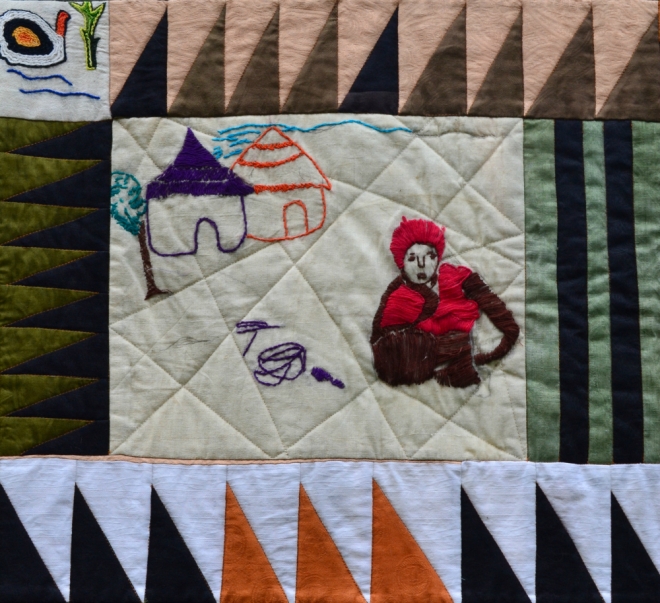 A disheartened woman, drawn away from her daily tasks. 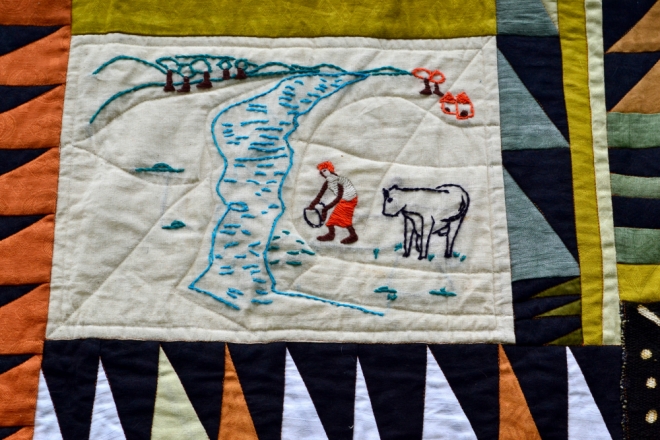 A woman fetching water with cattle. 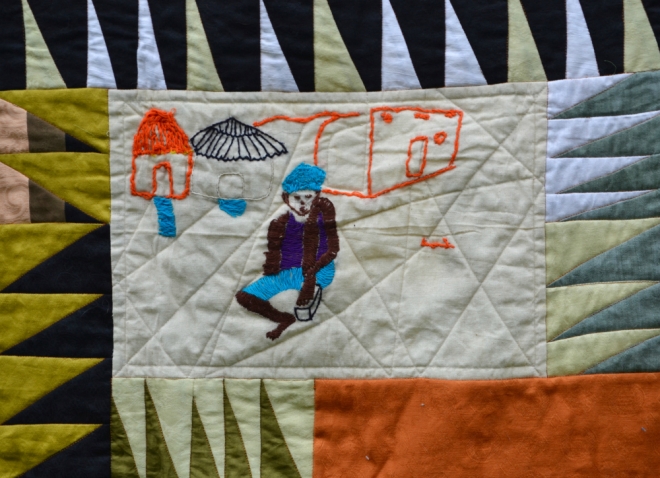 A young girl who is injured. 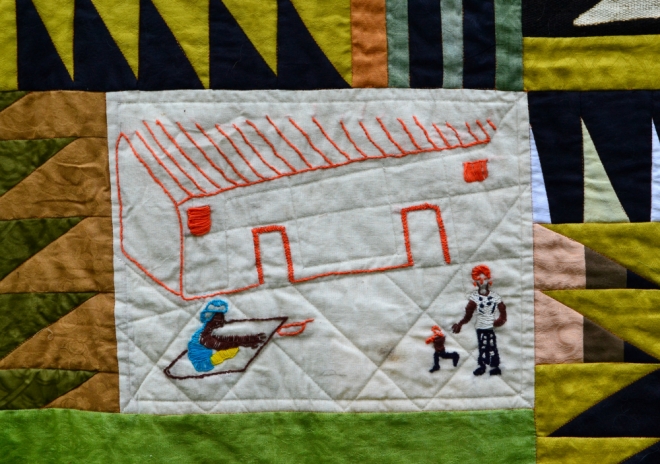 A family going about their daily lives. 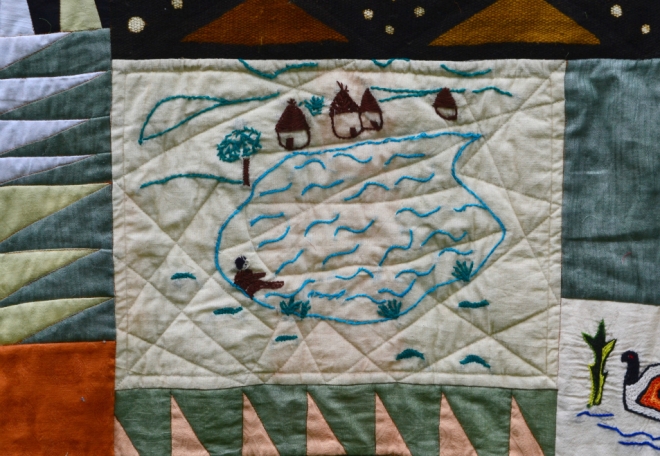 A man bathing in a river. |
The Second Alafia Mali Quilt
The Second Alafia Mali Quilt
|
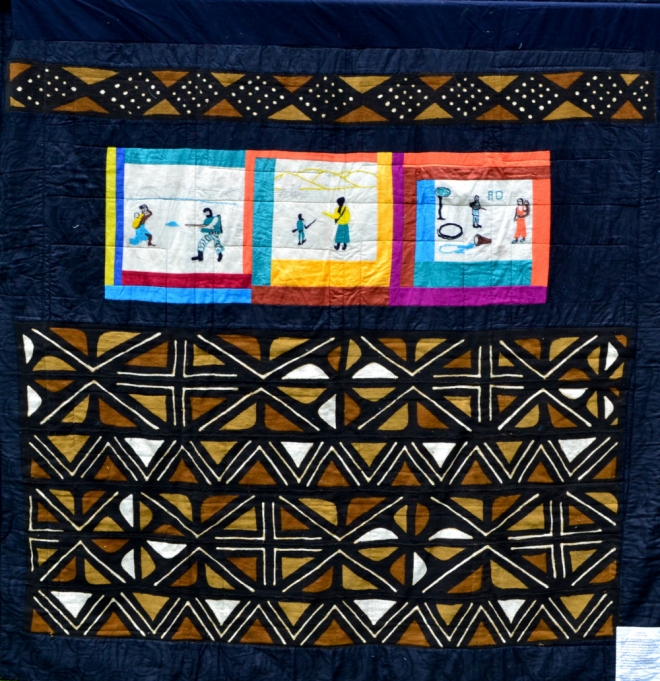 Back Side
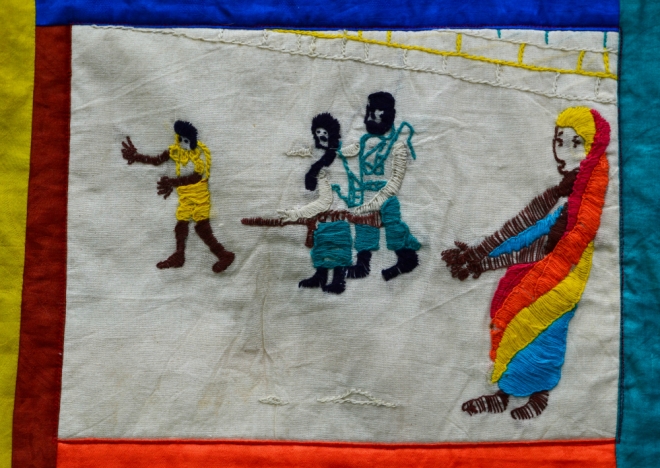 Woman (right) helpless as the military fires at a young boy. 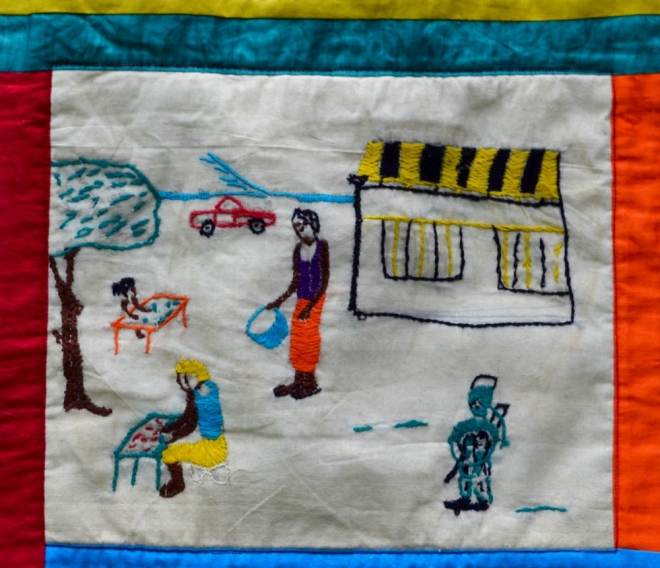 A disrupted village. 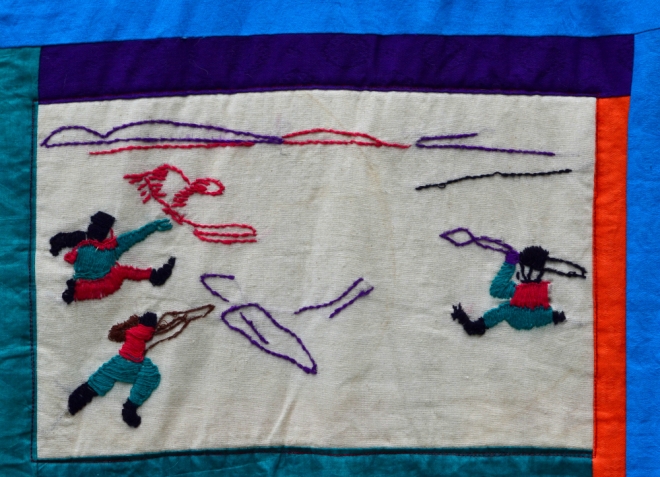 Carnage 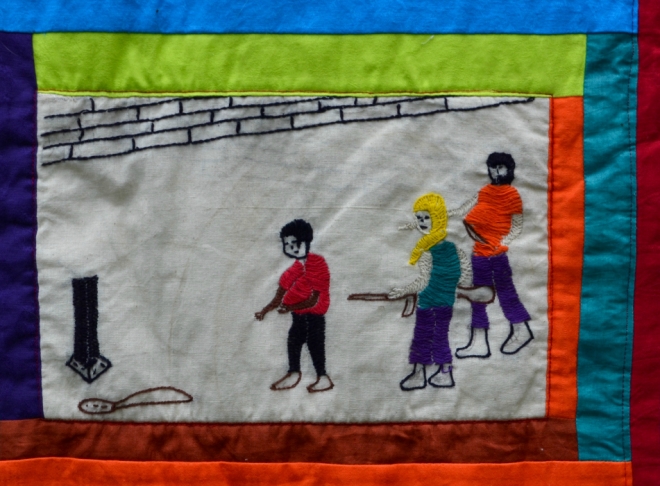 Rebels 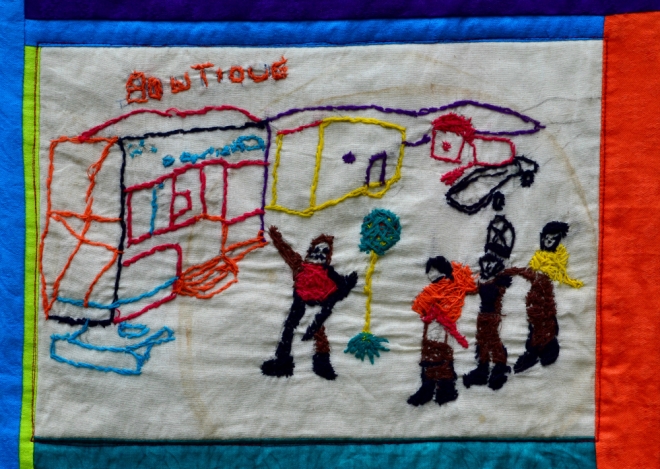 Chaos 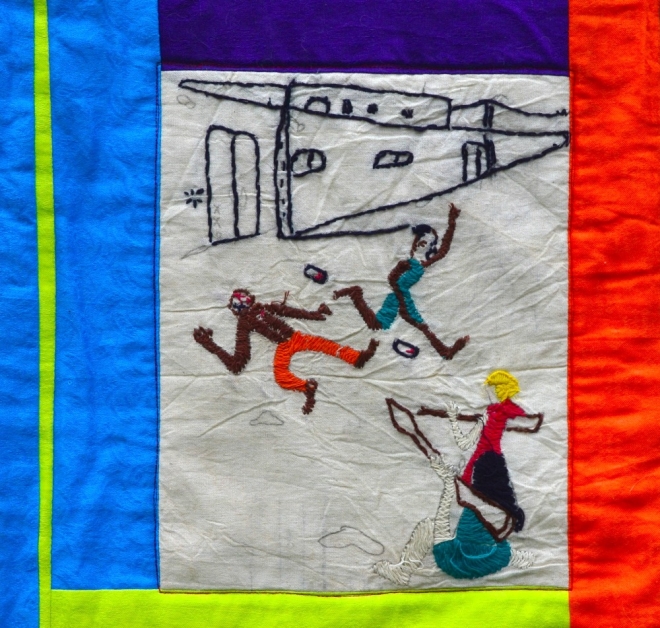 Carnage
|
The First Mali Camel Quilt
The First Mali Camel Quilt
|
|
The Second Mali Camel Quilt
The Second Mali Camel Quilt
|
|
The Third Mali Camel Quilt
The Third Mali Camel Quilt
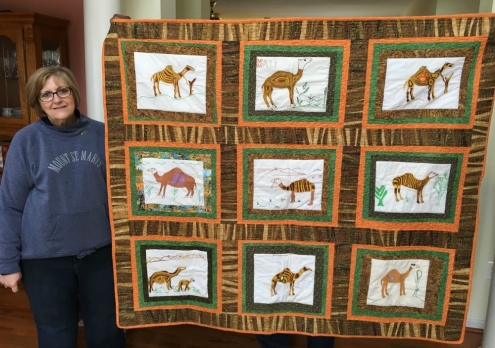 |
The Mali Camel Wall Hangings
The Mali Camel Wall Hangings
|
|

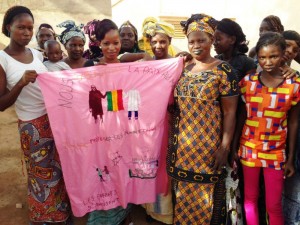
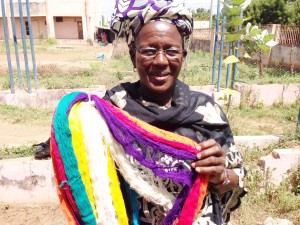
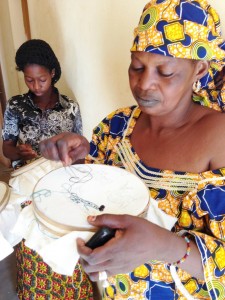
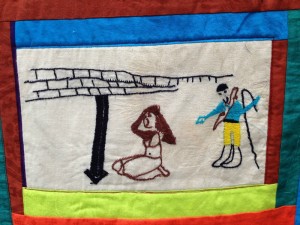
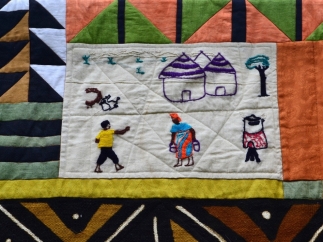
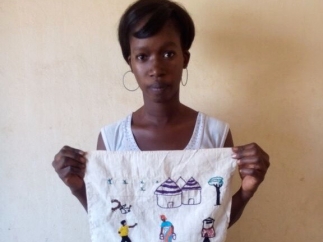
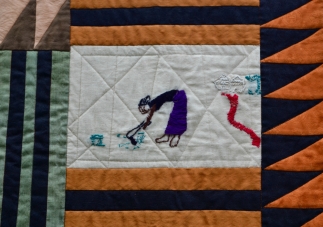
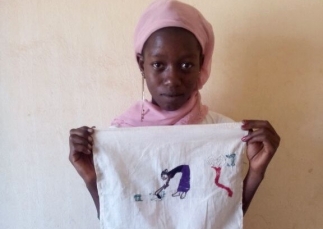
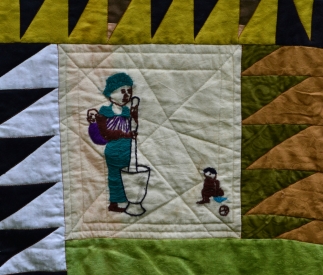
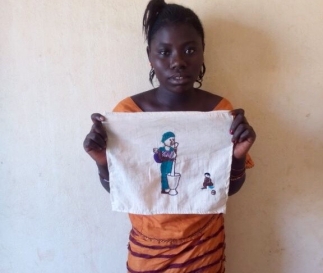
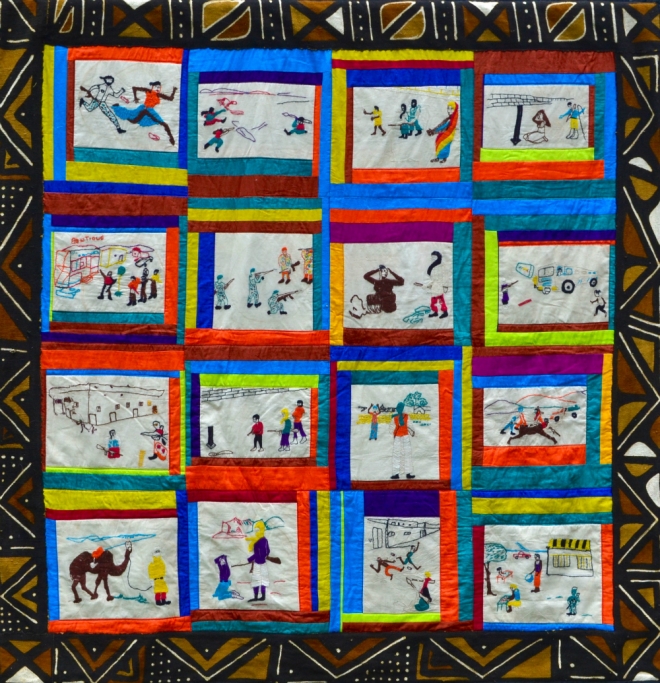 Front Side
Front Side